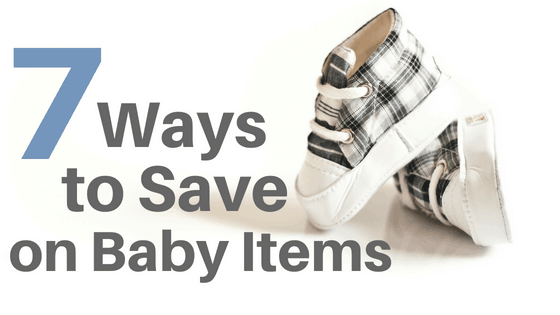There’s no doubt that eBay is an excellent place to buy and sell items from all over the world. It offers you access to millions of products at once, which makes it perfect for those who want to buy or sell big ticket items such as cars, electronics, houses etc. However, with so many listings competing for attention in each category, making sure yours stands out amongst them isn’t always easy. This means that even if you have a great product to offer and lots of experience in this type of business, chances are good that someone else will beat you to the punch. If you don’t mind waiting weeks before seeing any results then this may not matter to you; but if you need immediate gratification then you should consider alternative ways to get your goods listed on eBay.
Although you could list your item directly on eBay, you probably wouldn’t get anywhere near the amount you would by using another service with cheaper seller fees. You can also diversify and sell on well-known platforms like Amazon marketplace. One thing that sets these services apart from regular eCommerce platforms is that they allow sellers to set up shops within minutes without having any prior knowledge of website design. In addition to giving you instant visibility, they give you full control over pricing and delivery options. You can customize these settings to meet your specific needs.
Here are ten of our favorite eBay alternatives:
1. Facebook Marketplace
To put it simply, Facebook marketplace is kind of like eBay in that users have access to thousands of products at once. However unlike eBay, these listings aren’t open to everyone so only approved stores can participate. This means you have much greater flexibility when deciding whether to list your product or not. It also gives you lots of exposure by allowing friends and family members to see your inventory.
However, there are drawbacks too. One major issue is that you must maintain good reviews. Another problem is that Facebook charges transaction fees that vary based on location. That said, even if your business isn’t located nearby, you can always take advantage of shipping discounts offered by certain companies.
2. Amazon Marketplace
You probably already use Amazon as a place to buy books, music, movies, etc., but did you know you could do the same thing with your own goods? By setting up an affiliate program, sellers can list their wares on Amazon without having to pay any upfront costs. All they need to do is set up their accounts and ship their items to Amazon warehouses until they get paid. Once they reach the threshold amount, Amazon pays them via check or credit card statement. And since Amazon takes care of customer service, fulfillment, and returns, sellers don’t need to worry about anything except making sure their inventory looks great.
The process involves creating an account and uploading photos of your merchandise – after which you simply select your preferred payment method and start accepting orders. The best part? There’s no minimum quantity requirement, meaning you can list as little as 1 bottle of hand soap.
3. Craigslist
This free classified advertising network was created specifically to connect local businesses with potential customers. To post an ad, just create an account and upload pictures of your items along with detailed descriptions.
Craigslist does not require registration and lets people advertise almost everything imaginable—cars, apartments, jobs, pets, boats, houses, computers, baby supplies, motorcycles, old appliances, and much more. As long as your listing is clean and professional looking, it will attract plenty of visitors. While all of these areas require different approaches, common sense dictates that posting a many pictures of your product does better than selling without any pictures or using low resolution pictures.
4. Swappa
Swappa is a cool e-commerce site that allows users to buy and sell mobile devices. You set a price for your device, and Swappa will allow buyers to purchase it from you at that price. Once you ship your device, they will take care of the payment processing for you.
This is a great site to use if you want to sell your used mobile phones, tablets and other devices while saving on fees that a lot of other sites charge. Your only costs are a small service fee and the time needed to set up listings for each of the products you want to sell. But after the initial setup process, it’s very simple and painless.
5. Ruby Lane
Ruby Lane is another great place to buy and sell products that are niche in nature. You have the opportunity to make money by selling your own items or by buying from other users on the platform. This is a great platform to use if you’re interested in selling antiques or other vintage items that are hard to find.
Selling on Ruby Lane can be a bit more complicated than other sites. However, the great thing about their site is that it has a strong community of buyers and sellers, which makes it easy for users to connect with one another.
6. Poshmark
Poshmark is an online marketplace that aims to do for apparel and accessories what eBay does for electronics and cars. It connects buyers and sellers in clothing, accessories, home decor, furniture, jewelry, art, collectibles, antiques and more. Poshmark offers free listings, no minimum quantities required, and instant payments after receiving positive feedback. Although the seller fee is quite high at 20% of the item value, you get a free pre-paid shipping label and free credit card processing.
7. Etsy
Etsy was founded in 2005 as a way for artists to connect with potential consumers. Since then, it has grown exponentially and now boasts over 7 million active sellers. Etsy makes it easy to launch your own shop with a few clicks, all the while providing you access to more than 140 million items from around the world. Although you’re limited to selling only handmade or vintage goods, this online marketplace is unrivaled when it comes to giving sellers a way to connect with their customers. Plus, Etsy offers excellent customer service and is committed to protecting buyers from identity theft and fraud.
8. eBid
eBid is a very large internet based trading platform. It has a very strong seller base of more than half a million. There are free and paid features, with the paid version allowing you to use tools such as automatic uploading of your products to the site and ensuring your brands are ranked highly on search engines. eBid is much more accessible than most other sites, with a user interface that is easy to use and understand.
9. Offerup
Offerup connects customer to seller. The first step, is choosing what you want to sell, and then continuing down the path of creating a free listing. You can also choose which items you’re willing to sell at what price. You can also pay to promote your items if you need to sell the item faster. We were able to sell a couch in less than 24 hours, and the listing was also featured in Search Inside Yourself.
10. Shopify
Are you tired of paying seller fees and want to try to create your own store? Shopify is a platform specifically designed to help small businesses grow their presence online. It allows its users to create e-commerce storefronts both easily and inexpensively, all while providing customers with access to analytics to monitor traffic, manage orders, track conversion rates, and optimize campaigns.
Conclusion
Online selling is a rapidly expanding market that you can most likely get involved in. With just a little bit of knowledge and effort, you too can make money while doing something that you enjoy. Reap the benefits of being a part of this booming industry by selling online on multiple marketplaces. Remember to always stay focused on your business goals and treat your customers as you would like to be treated. Good luck!







